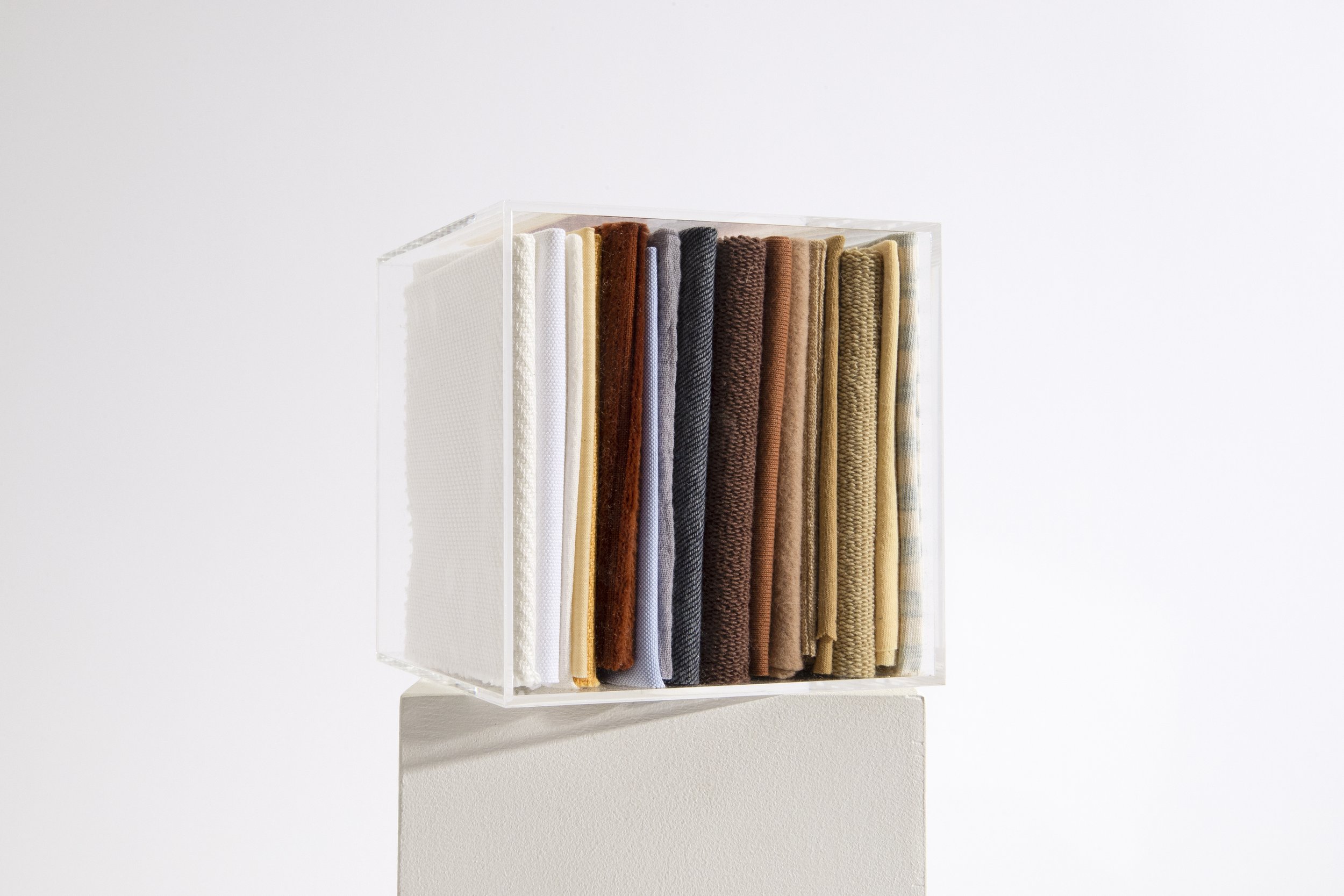FibreTrace® and Circular Systems™ Join Forces To Tackle Traceability in Recycled Cotton
Circular Systems™ has joined forces with FibreTrace® to implement physical traceability technology into Texloop™ RCOT™ recycled cotton on a global scale.
March 15th, 2023
Written by FibreTrace®
Each second, somewhere in the world, a truckload of textiles is emptied into landfill or incinerated (Ellen Macarthur Foundation, 2017). With EU textile waste now weighing in at 5.8 million tonnes per year (over 11kg per person), regulators are stepping in to support solutions that turn waste into value (EEA, 2019).
With looming obligations for EU countries to build circularity into design, retailers are likely to look toward regenerative and recycled textile options.
Textile innovation company Circular Systems™ joined forces with FibreTrace® to implement physical traceability technology into Texloop™ RCOT™ recycled cotton on a global scale.
Texloop™ is the global textile recycling platform launched by Circular Systems™’ in 2018. Texloop™ Recycling upgrades post-industrial as well as pre/post-consumer cotton textile waste into high performing RCOT™ recycled cotton fibre, which is recognised as the highest-quality and most consistent recycled cotton fibre in the global market.
The technology puts recycled cotton at the forefront of the field as one of the lowest-impact fibre choices. Texloop™’s recycled cotton uses up to 99% less water than conventional cotton (and completely mitigates land use), 54% less energy, and emits 20% less carbon.
FibreTrace® ensures information integrity via physical traceability markers suspended in the recycled fibres. The technology is used to securely collect, store and communicate key supply chain information. The traceability solution guarantees the fibre itself is traced and reduces chance of human error or fraud by waiving reliance on documentation or labelling.
The combined power of Circular Systems™'s Texloop™and FibreTrace® provides a footing for retailers to move ahead of looming obligations for EU countries, as regulation across the industry calls for increased environmental accountability.
Last year, the European Commission announced a principal strategy to improve the social and environmental impact of textile products on the EU market by 2030. Most prominently, the Strategy for Sustainable and Circular Textiles seeks to ensure products are long-lived and recyclable, made mostly of recycled fibres. The directive is critical to incentivising the diversion of still-valuable textile resources from abundant waste streams.
Prioritisation of recycled materials not only reduces textile waste but allows viable material in waste streams to create further value, incentivising circularity and thus diminishing the industry’s reliance on volatile virgin fibres.
Incentivised support for the recycled textile industry creates space for further innovations which tackle other types of waste. One such example is the Agraloop technology by Circular Systems™ which uses agricultural crops to create BioFibre™, a new form of high-value natural fibre for the fashion industry.
Adherence to the strategy will work toward finally decoupling textile waste generation from the growth of the industry, as circular environments become the norm.
Credit: Circular Systems
"Circular Systems is honored to be working in strategic partnership with FibreTrace, which we see as the new industry standard technology for traceability. This partnership will enable traceability on all of our Texloop™ and Agraloop™ fibre products by 2024. FibreTrace enables the Texloop platform to bring much needed traceability and transparency to the world of Recycled Cotton, and in doing so we will help to improve the authenticity, and quality of the global recycled cotton sector, "
– Isaac Nichelson, CEO of Circular Systems.
Additionally, the Directive on Corporate Sustainability Due Diligence adopted by the European Commission in late February 2022 is designed to create a system of accountability around socially and environmentally responsible practices for European companies. Due diligence extends to suppliers and along value chains, regardless of location.
With recycling systems positioned globally to serve local supply chains, Texloop™ benefits from FibreTrace®’s physical traceability as a source of truth, securely tracing trash-to-treasure transformations in fashion.
Textile impact and supply chain traceability are inextricably linked. Without an authenticated, traceable custody of supply, retailers are unable to quantify, communicate or report on their garments’ true impact. Lack of evidence leaves consumers asking, are recycled fibres green, or greenwashing?
Allied in the pursuit of accountability in the textile industry, FibreTrace® and Circular Systems™’ collaboration tracks and illuminates the circular economies attached to recycled fibres to provide retailers and consumers with absolute confidence in their products’ impact.
FibreTrace® will be activated in all Texloop™ and Agraloop™ products by 2024.
Ellen Macarthur Foundation, A New Textiles Economy: Redesigning Fashion’s Future (2017)
EEA, Textiles and the environment in a circular economy (2019)



